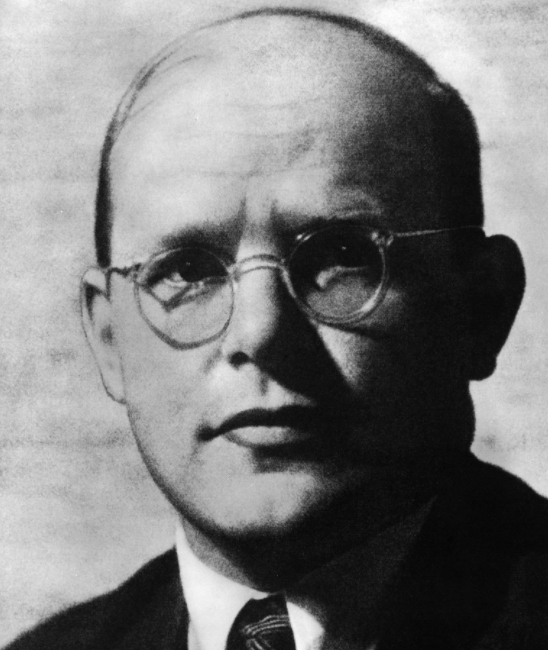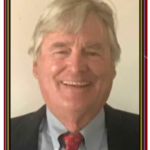In Praise of Dietrich Bonhoeffer

I decided to look over my notes on Dietrich Bonhoeffer in light of the current political situation facing our country. He too battled fascism. After completing the review, I found some parallels between then and now in a nationalistic church with little or no interest in the Christian gospel, at least as I understand it, but what I was most impressed with was Bonhoeffer’s treatment of Christian ethics. The only thing that mattered to Bonhoeffer was how one lived.
Dietrich Bonhoeffer was born in Breslau Germany on February 4, 1906. He was executed by the Nazis at Flossenburg concentration camp on April 9, 1945 for his participation in a plot to kill Hitler.
Bonhoeffer went after Hitler from the beginning. Two days after Hitler became Chancellor in 1933 Bonhoeffer gave a radio address criticizing his authoritarian approach to leadership and his anti-Semitism. When Hitler demanded church leaders sign loyalty oaths and accept his racial policies, Bonhoeffer and a small group of brave clerics formed the Confessing Church in 1934. Bonhoeffer headed the seminary that trained pastors for the Confessing Church. When the Nazis shut it down in 1937, Bonhoeffer made secret visits throughout Germany for two years to train seminarians for his rival church.
When the war broke out, he joined the Abwehr, the German military intelligence. He used his position there to become a spy, reporting military secrets to the British. In addition, he participated in several botched efforts to assassinate Hitler which eventually put him in the crosshairs of the Gestapo that led to his execution in April 1945.
During his tragically short professional career, Bonhoeffer published several book including two classics on Christian ethics, The Cost of Discipleship in 1937 and Ethics which was published after his death. His approach to Christian ethics was quite simple. The key to being a Christian was how you lived. He taught a “religionless Christianity” in which what you believed and whether you went to church was unimportant. All that mattered was obedience to the word of God in all aspect of your life. This word was expressed in the sense of goodness and love that bubbles through your awareness. The point for Bonhoeffer was to apply this revelation from God to everyday life. His primary concern was how to apply God’s love to deal with the problems facing his world.
Bonhoeffer undertook his courageous work to oppose Hitler based on his sense of revealed goodness and love. When he learned of Jewish persecutions and arrests, this sense of love urged him into action. He had a reputation for kindness and generosity in his dealings with all those he encountered. This kindness was never more impressively displayed than during his year and a half in prison. He was kind, generous, and cheerful with both fellow prisoners and guards alike. For Bonhoeffer it was all about serving neighbors. He turned down several opportunities to escape for fear his escape would implicate and become a danger for his family.
How did Bonhoeffer become this great man of God, a man who fearlessly pursued the dangerous work of opposing Hitler and who acted with great kindness to all those he encountered? As a small child, people commented on his sweetness of character. His parents taught all their children to live unselfish lives, to live with integrity and with respect for the rights and needs of others. This can’t be a complete answer to the question posed above, however. Lots of Christians, me included, come from similar backgrounds and yet never measure up to Bonhoeffer’s selfless devotion to living the love he encountered from God.
I find a possible answer to this question in one of my favorite books, A Beautiful Mind by Sylvia Nasar. You may have read the book or seen the movie. Nasar’s book documents the life of John Forbes Nash, Jr., the mathematical genius and inventor of the theory of rational behavior. The fields of economics and game theory were fundamentally changed because of his work. For his work in these fields, he was awarded the Nobel Prize for Economics in 1994.
Sadly, underneath the brilliant surface of his life, chaos reigned. Nash was diagnosed with paranoid schizophrenia at age thirty. According to Nash, there were two voices in his head, both equally valid: the voice of reason and the voice of aliens.
The voice of aliens produced persistent, scary, debilitating delusions. At one point he saw men at MIT running around in red neckties signaling him. He came to see himself as a religious prophet of great importance with an alternating sense of megalomania and impotence. This voice was extremely disturbing, creating within him a sense of apathy, persecution, and social isolation.
To cope with the problem, he tried psychotherapy. He was hospitalized six times, often involuntarily. He received all sorts of drug treatments, shock therapy, and insulin coma therapy where he was placed in an insulin induced coma. Nash described this last treatment as torture.
None of these therapeutic approaches worked. The voice of aliens was sometimes temporarily reduced, but it kept coming back. This horrible disease ruined his career and marriage.
But there is a happy ending to the story. In 1970, Alicia, his divorced wife, took him back. Because stress often triggers schizophrenic attacks, she offered him a normal life in the academic community of Princeton University, which was relatively stress free. Nash did the rest. Over the years he had come to understand the processes of the disease, which enabled him to recognize the voice of aliens and to reject it. He decided not to listen to this disturbing voice in his head. It was a constant policing operation. His mind was beautiful because he was able to will his own recovery without help from drugs or therapy.
I love this book because Nash’s story is my story. I too am a prisoner of two voices in my head — a voice of love and goodness and a voice of ego focused self-centeredness. My goal in life has been to live the teachings of Jesus in the Sermon on the Mount. The problem is my ego focused voice has often gotten in the way.
I have tried prayer. I have asked God to quiet this voice, but it hasn’t worked. You would think that this would be the type of prayer God would answer. I’m not asking to be rich, but to live more like Jesus. But God has not listened. It is obvious he is not a being who works in that way, and so I have stopped praying. I have also tried meditation with similar results.
There is, however, a nice ending to this story too. Like Nash, through a constant focus on the problem, I have come to recognize and understand how ego operates in my life. Inspired by the great mathematician, I’m learning to ignore and reject it. Nash’s example tells us the mind is a powerful tool for focusing awareness and that humans are decision makers with some control over their fate. The process for me is a constant policing operation that I sometimes don’t win. When the voice of ego is quieted, the voice of love grows louder and comes to dominate more of my awareness. Acts of kindness naturally follow.
In a poem he wrote in prison entitled “Who Am I,” Bonhoeffer talks about working through a similar process. Here is the concluding verse of that poem.
Who am I? This or the other?
Am I one person today and tomorrow another?
Am I both at once? A hypocrite before others,
and before myself a contemptible woebegone weakling?
Or is something within me still like a beaten army
fleeing in disorder from victory already achieved?
Who am I? They mock me, these lonely questions of mine,
Whoever I am, Thou knowest, O God, I am thine!
Bonhoeffer’s poem documents his struggle between the forces of flesh and spirit that floated through his awareness; but, as the last line tells us, he decided for God. Because of his decision he saw the world through the eyes of love, beauty, and goodness. He lived a life of joy and caring in a Nazi concentration camp despite a death sentence he faced daily. From this vision came the mission of his life to work for justice in the world in which he lived. His life is another beautiful story, the story of the victory of God’s love.
Dr. Rick Herrick (PhD, Tulane University), a former tenured university professor and magazine editor, is the author of four published novels and two works of nonfiction. His most recent book, A Christian Foreign Policy, presents a new way of looking at the relationship between religion and politics.

